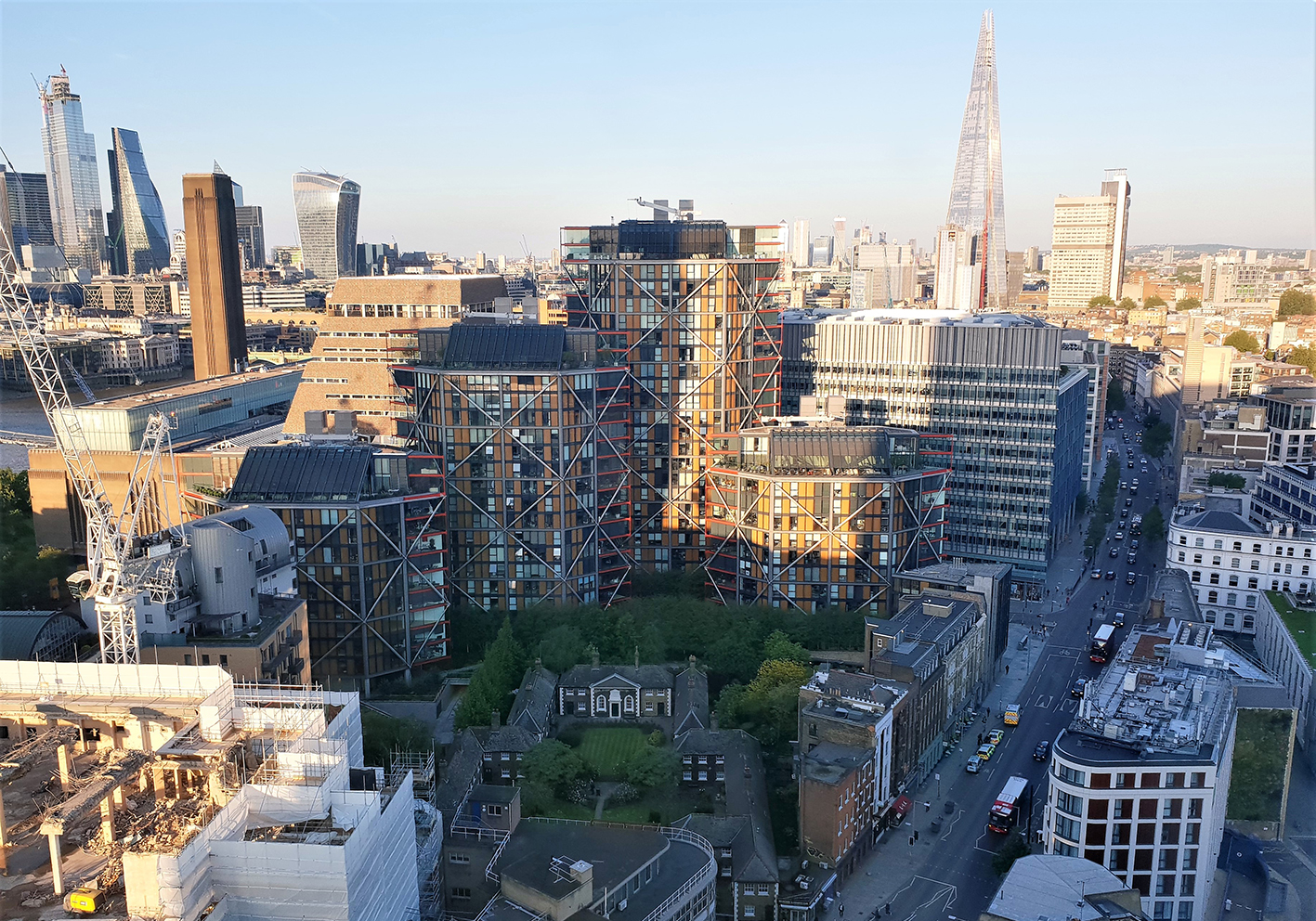Despite the cited success of reduction of emissions in line with the Government’s Carbon Budgets, we are well aware that much of this success has come from easy wins, such as closing operations at coal-burning power stations. The final push to zero carbon by 2050 is the real challenge, as the gap between effort/expenditure and results narrows.
The clear agenda is to adhere to a course of action that curbs global greenhouse gas emissions so that temperature rise remains ideally below 1.5 degrees Celsius within the established timeframe.
To achieve a state of zero carbon emissions requires those with a significant role in global energy consumption and the associated emissions to come to a consensus agreement on tackling the issue. The building and construction sector is currently responsible for around 30% of global energy consumption, and here in the UK there is encouraging new action to drive an ambitious transformation of the industry with co-ordinated action towards delivering 100% net zero carbon buildings by 2050.
The UK Green Building Council (UKGBC) has developed a framework definition for net zero carbon buildings to begin to provide direction for addressing whole life carbon in the industry and clarity on action to achieve net zero carbon across the UK built sector.
The first phase of this work has set the scope of the work required by the industry which can be accurately measured. The UKGBC has set out two clear approaches, net zero carbon construction, and net zero carbon operational energy. In the coming decade, the intent is to develop and ensure these approaches become enshrined within industry protocols.
To reduce construction impacts the framework proposes a whole life carbon assessment should be undertaken and disclosed for all construction projects to drive carbon reductions. The carbon impacts from the product and construction stages should be measured and then offset at practical completion.
To reduce operational energy use, the framework proposed reductions in energy demand and consumption be prioritised over all other measures. In-use energy consumption should be calculated and publicly disclosed on an annual basis with an increase in renewable energy supply and on-site renewable energy source prioritised. Off-site renewables should demonstrate additionality and any remaining carbon must be offset to achieve net zero using a recognised offsetting framework and the amount of offset used should be publicly disclosed.
The framework has been presented as a starting point, with the next ten years seeing the scope and ambition of the framework increased to encourage greater action.
In the short-term, additional requirements will be introduced to challenge the industry, including minimum energy efficiency targets and limits on the use of offsets.
In the longer term, the two approaches for construction and operational energy will be integrated into a broader approach for net zero whole life carbon, covering all of the emissions associated with the construction, operation, maintenance and demolition of a building.
Discover more at https://www.worldgbc.org













